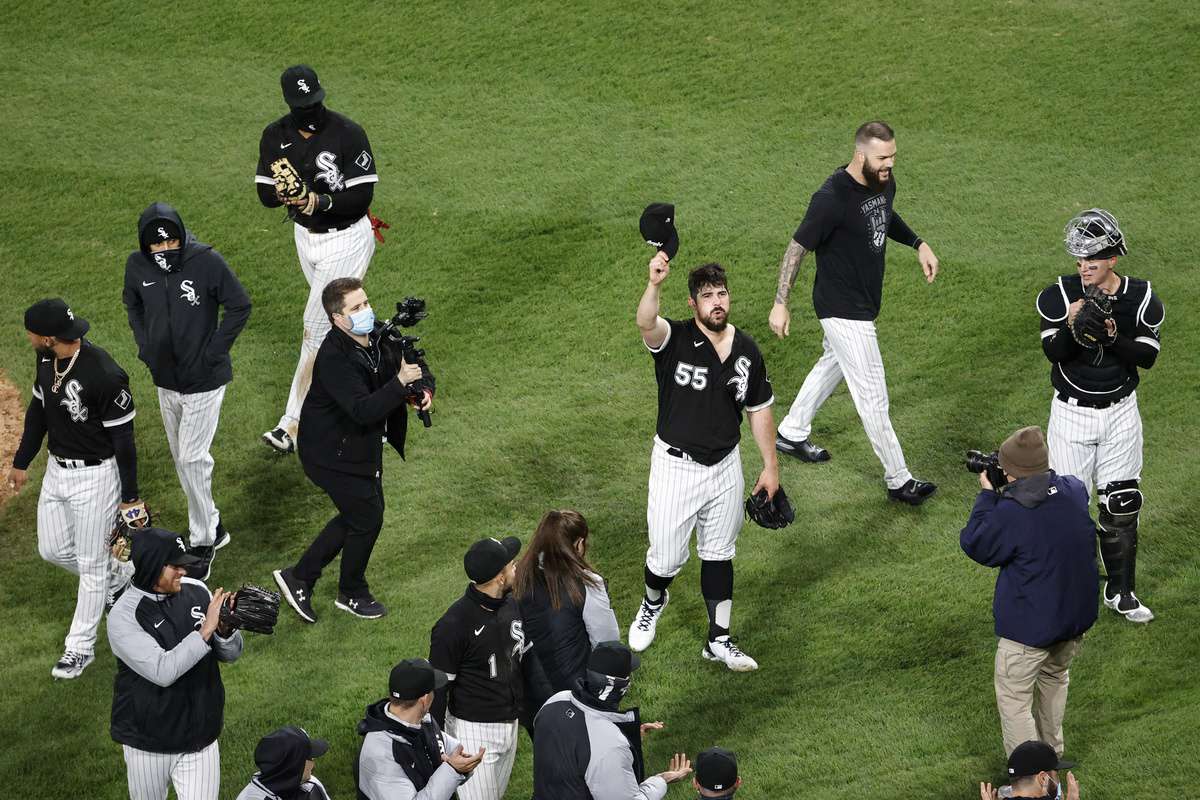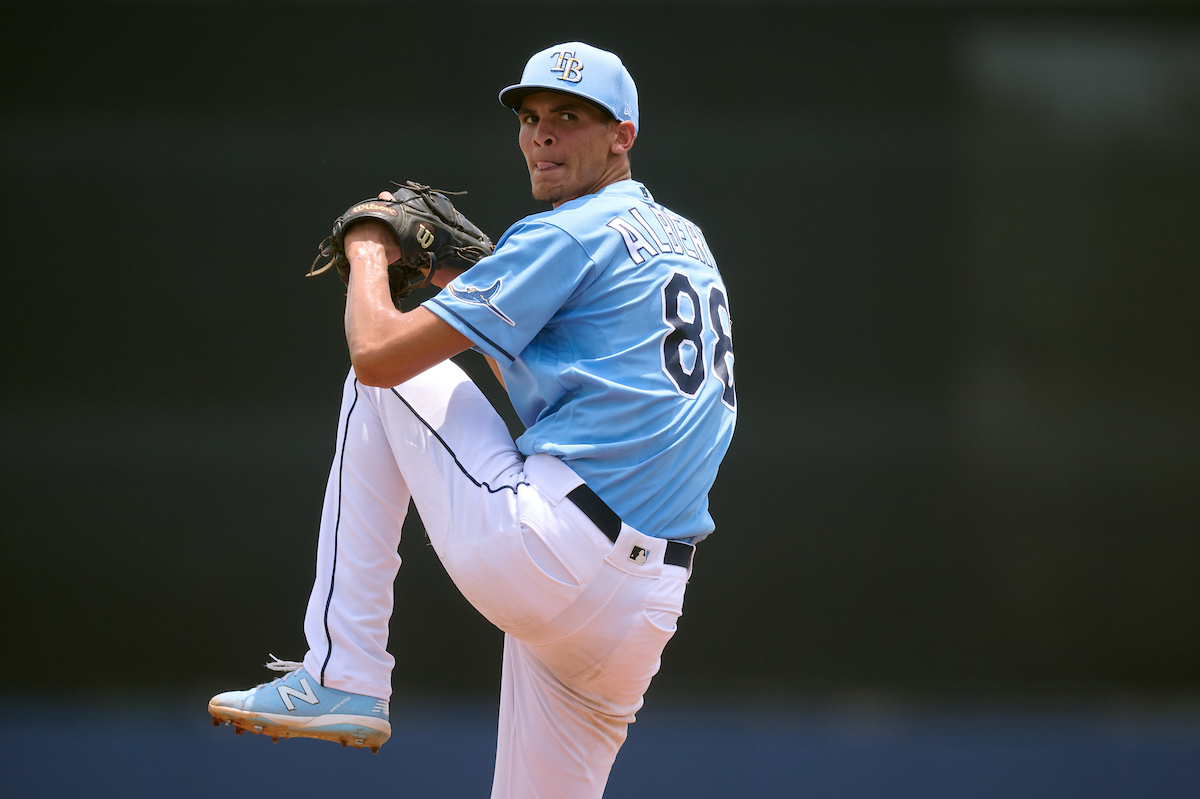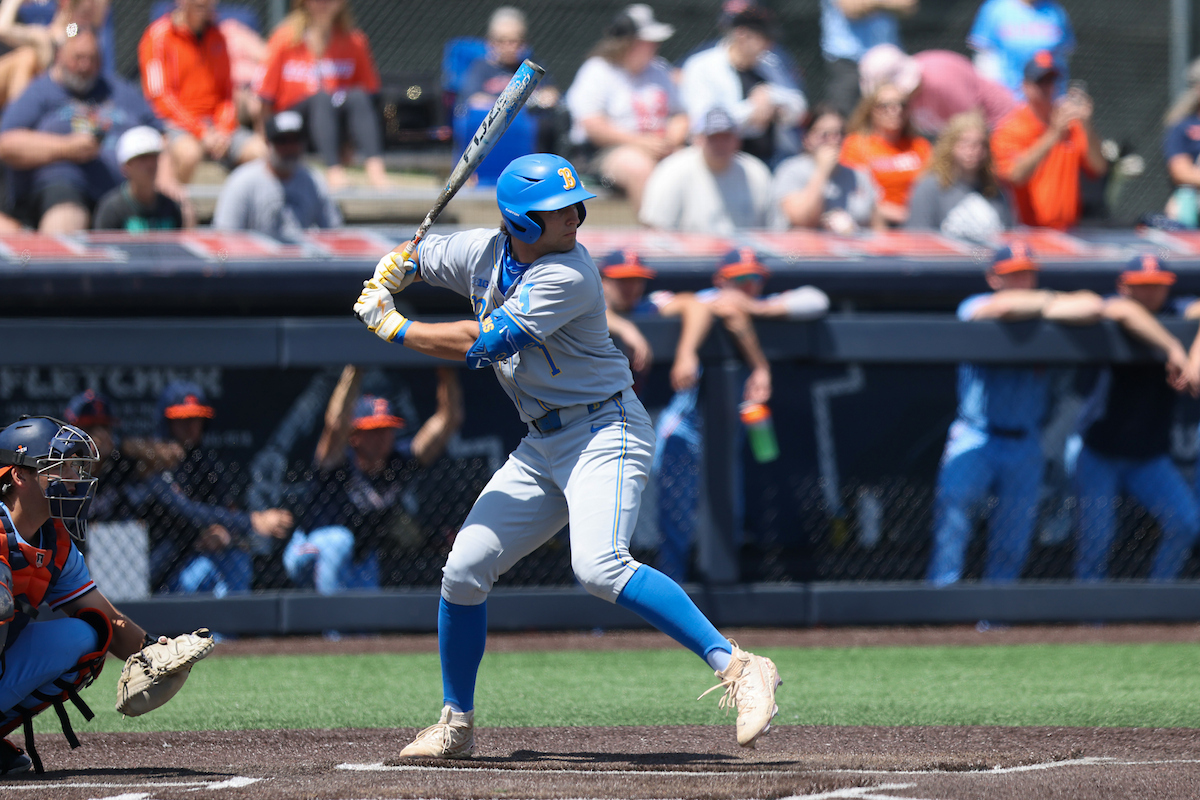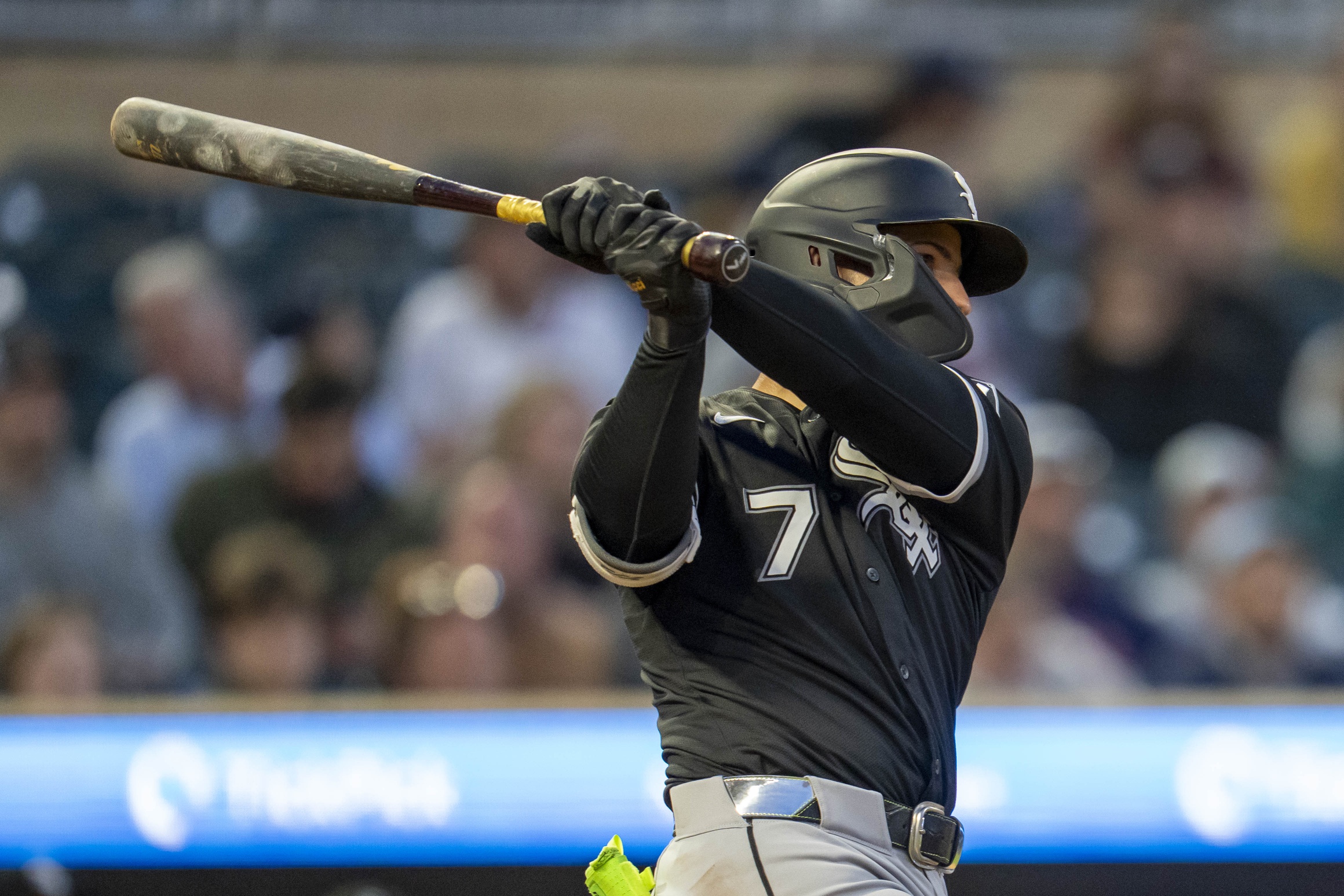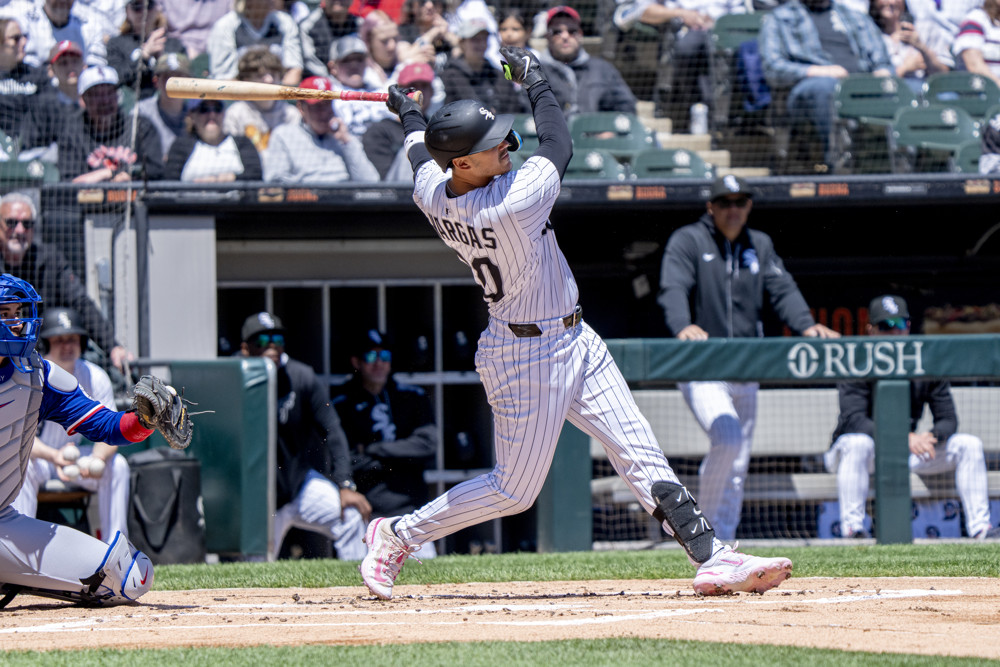Now that the sting from the White Sox's too-short run in the postseason has worn off -- at least a little -- the time has arrived to look back at the 2021 season.
There's a good binary debate to be had about whether it was a success, and James Fegan took a crack at it in his summary of the season. Regardless of what side you take, both sides would have to agree that it contained successes. The 2021 season featured the first full winning season since 2012, and the first division title since 2008. TV ratings shot through the roof, and when the park opened to full capacity, the White Sox finished in the top third for American League attendance. The White Sox finished 53-28 in front of their fans. Their paying customers finally received an outstanding product.
Perhaps it's an argument that can only be settled after we see what happens in 2022. If a single postseason win is more or less as good as it gets for this window of contention, then that's not the kind of payoff anybody envisioned. However, if the White Sox use the winter and following season for building upon everything -- the results, the roster, the payroll expectations -- then perhaps you can point to 2021 as a success because it generated the necessary excitement to propel the franchise forward.
Below are 10 games that did a lot to establish their ability to excite.
No. 10: White Sox 9, Twins 5 on July 20
Another person's list might have half of the games against Minnesota, because they tended to take the form of crowd-pleasers even before you multiplied the effects from defeating the Sox's alleged biggest rival. Hell, Gavin Sheets walked off a seven-inning game the day before this one.
Here, the White Sox let a 4-1 lead turn into a 5-4 deficit in a game that was eerily reminiscent of an evening that might end up making the cut for the season's worst games.
Then came the eighth inning, in which the Sox tied it up on a ballsy end by Joe McEwing and a terrific slide by Adam Engel, followed Billy Hamilton picking up Tim Anderson with the go-ahead single, and José Abreu burying the game with a three-run homer.
Were this a list of the season's best innings, this game would be higher.
COMPANION GAMES: White Sox 5, Twins 3 on June 19 with the Sheets walk-off. Or, White Sox 4, Twins 1 on July 6. You may remember it for Billy Hamilton's catch.
No. 9: White Sox 10, Astros 1 on July 17
The 2021 White Sox hadn't proven they could beat the 2021 Houston Astros entering this game, as the previous series resulted in a four-game sweep at Minute Maid Park in which the Sox were outscored 27-8. The first game of this series was more of the same, with a 7-1 loss at the hands of Lance McCullers.
But before the White Sox next took the field, they announced a two-year extension for Lance Lynn that had the 34,000 fans in a much better mood. Lynn didn't pitch, but Lucas Giolito took care of business accordingly, and the White Sox took two of three.
If only this game foreshadowed the shape of the third and final series between the two teams this year. Alas.
COMPANION GAME: White Sox 4, Astros 0 on July 18. Carlos Rodón led a one-hit effort. Unfortunately, he couldn't summon that form against Houston one more time for the road.
No. 8: White Sox 9, Reds 0 on May 4
The score alone might suggest that the White Sox played in a highly satisfactory way, but the score only tells you half of what Dylan Cease did. On the mound, he struck out 11 batters over six innings of one-hit ball, which was great stuff.
At the plate? Cease three-hit the Reds, and that's amazing stuff. His first three at-bats since high school went for a single and a butcher-boy double, which is a butcher man as far as I'm concerned.
Cease registered the first three-hit game by a White Sox pitcher since Tom Bradley did it in 1972, and with the threat of universal DH looming, there's a good chance we just saw the last one.
PERTINENT: Dylan Cease is a professional hitter until baseball proves otherwise
No. 7: White Sox 13, Twins 3 on June 30
We figured when Josh Donaldson signed with the Twins that the White Sox weren't going to enjoy seeing him in the division any more than they enjoyed his visits with Oakland and Toronto. Age has lent the Sox a hand. Donaldson's series of leg injuries have limited him to a line of .200/.326/.413 over 22 games against Chicago as a member of the Twins, and that's when he's able to play.
He's still capable of big swings, like the one he took in the first inning against Lucas Giolito on June 29, in the wake of baseball's looming crackdown on grip-enhancing substances. Upon crossing the plate and giving the Twins a 2-0 lead, he told his teammates loudly enough for everybody here, "It's not sticky anymore! It's not sticky!" The White Sox ended up shrugging it of with a 7-6 victory.
The next day, Donaldson continued to relish the villain role for a last-place team, hitting a solo shot off Dylan Cease and rounding the bases to a cascade of boos. The White Sox responded with six homers and a 10-run victory, and while Giolito engaged him through the media in a rather ineffective fashion, the Sox as a team acted as the Twins were beneath them. And they were.
COMPANION GAME: White Sox 16, Twins 4 on May 17. It would've been more fondly remembered for Yermín Mercedes' blast off Willians Astudillo and Nick Madrigal's first-ever homer, but they lost their
No. 6: White Sox 13, Cubs 1 on Aug. 29
The White Sox won whatever they're calling the Crosstown Cup with only the second 5-1 record in the history of the intracity series. The Sox scored runs in bunches, so you can take your pick of which one was the most satisfying, but it was cool to see Cease take it to his former organization while the Sox lit up a respectable starter in Kyle Hendriks for three of the five homers they'd hit on the evening, including two by Luis Robert.
COMPANION GAME: White Sox 9, Cubs 3 on Aug. 8. The White Sox opened the game with first-inning homers by Tim Anderson, Eloy Jiménez and Andrew Vaughn.
No. 5: White Sox 7, Rays 5 (11 innings) on Aug. 20
'The first -- and maybe only -- 11-inning game for the White Sox in two years of the Manfred Man on second went the White Sox's way. You could say it shouldn't have gotten that far, as Aaron Bummer replaced Craig Kimbrel in a pitching change Tony La Russa flagellated himself for after the game and turned a 4-2 lead into a 5-4 deficit.
But for the second time in a week, Tim Anderson merely saw it as an opportunity to burnish his legend. He opened the ninth inning with a full-count homer off JT Chargois that tied the game. When he next came to the plate in the 11th after Liam Hendriks pitched a scoreless 10th, he singled home Zack Collins to open the inning, took second on the throw home, moved to third on a wild pitch and scored on José Abreu's bouncer.
Anderson scored four runs in a game for the second time in his career, recording the game-tying and game-winning RBIs in the process. That's hard to beat, and yet four games finished ahead of it.
No. 4: White Sox 7, Cleveland 2 on Sept. 23
If division titles were more common, then perhaps we could downplay the importance of the clincher. Perhaps the Sox will get there. Until that point, it's pretty hard to keep out of the top half of any best-of list.
And while this game was a rather ordinary comfortable victory, there was some poetry. The season before, the White Sox had an opportunity to knock Cleveland out of the running, but instead got swept in a four-game set at Progressive Field to set into motion their tumble into third place.
This time, the Sox wasted no time leaving no doubt. Anderson opened the afternoon with a leadoff homer, and the rout was on. The only negative was that they clinched in the first game of a split doubleheader, meaning they had another game to get out of the way that evening before they could properly celebrate, so the on-field display was rather muted.
PERTINENT: Despite best efforts, White Sox can't escape importance of division title
No. 3: White Sox 8, Cleveland 0 on April 14
In between division titles, three White Sox pitchers threw no-hitters, and oftentimes they had little competition for the top moment of the year. Carlos Rodón added a fourth in April against Cleveland, and yet two games top it.
Unlike Lucas Giolito's no-hitter against Pittsburgh in 2020, which felt like the deeply plotted climax of his comeback story, Rodón's no-hitter came out of nowhere. In his previous appearance, he opened with five shutout innings against Seattle that reflected potential, but were also typically inefficient. The outing before that, he flopped in Game 3 of the Wild Card series to such an extent that it seemed like he'd thrown his last pitch in Chicago.
Thank goodness he didn't.
Rodón's no-hitter was a revelation, and unlike Philip Humber, it didn't represent his peak. Rodón made the All-Star team with a first half that put him in Cy Young contention. While shoulder issues resurfaced in the second half and limited his availability and effectiveness, it was still a pleasure to see Rodón at his peak in a White Sox uniform. After the club non-tendered him and signed him well into the offseason, he very well could've had his Rodónaissance with another team.
PERTINENT: Carlos Rodón's no-hitter is delayed gratification, a little ahead of schedule
No. 2: White Sox 12, Astros 6 on Oct. 11
The White Sox rebuild lost some of its innocence with its convincing four-game defeat to the Houston Astros, but fortunately the legacy of the night Blackout Game remained intact. The White Sox dusted off the tactic last seen in 2008, and while it's cool to see a sold-out crowd darken the backdrop with black tops and towels, a loss in Game 3 that cemented a Houston sweep could've reduced the whole idea to a gimmick that worked once, and too damn long ago at that.
Instead, the White Sox rallied from a 5-1 deficit with a six-run blowout that made the idea of a Game 5 in Houston rather plausible.
Their performance in Game 4 rendered those plans moot fairly quickly, but that was a day game. The White Sox are still undefeated when their fans wear their Invisible Pedestrian costumes in October, so it can live on for at least one more year.
No. 1: White Sox 9, Yankees 8 on Aug. 12
Between two other teams, or maybe the same two teams on a different day, and the Field of Dreams Game could've been an aesthetically pleasing exercise in nostalgia for a game that really needs to figure out its place for the next generation. A lopsided score might've had Kevin Costner hanging around the broadcast booth for innings when we saw that one was plenty.
Instead, the biggest stars in the White Sox and Yankees lineups exchanged haymakers on the farm. José Abreu homered, and so did Eloy Jiménez. But then with Hendriks on the mound tasked with locking down a 7-4 game, Aaron Judge hit a second homer, and Giancarlo Stanton followed suit to give the Yankees the lead.
That would've been sufficient drama for the viewing audience, because the game already had enough tension to fill the national stage. Had Zach Britton pitched a 1-2-3 inning, everybody still would have departed Dyersville with sufficient value for the inflated price of admission.
But the Yankees weren't the reason why Major League Baseball staged a game in the middle of Iowa. The White Sox were. Maybe not for the best of reasons, but the White Sox inspired the decision just the same. The Yankees would've deserved to win, but studio executives wouldn't have green-lit that ending.
A Tim Anderson walk-off homer? That's the stuff movies are made out of.
It's better with strings. pic.twitter.com/h6puNYU7Rc
— Jim Margalus (@SoxMachine) August 13, 2021
Before the teams took the field, I didn't think the game had much of a chance of surviving the marketing. After it, the only problem is that the next two teams to play in Iowa stand no chance of matching what we saw.
PERTINENT: At 'Field of Dreams' site, Tim Anderson, White Sox spin a backward-looking game forward
(Photo by Kamil Krzaczynski/USA TODAY Sports)
